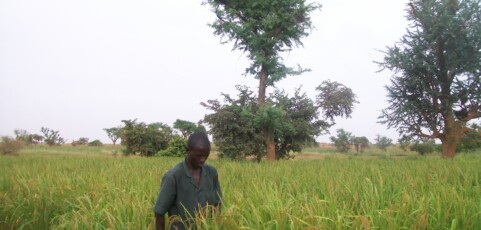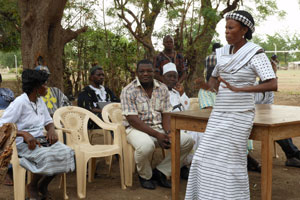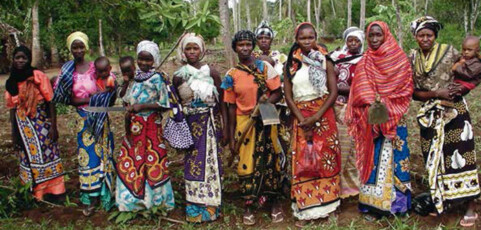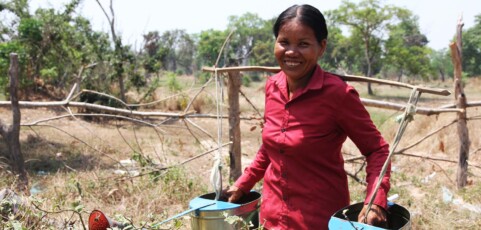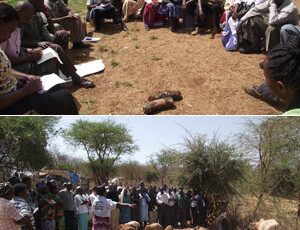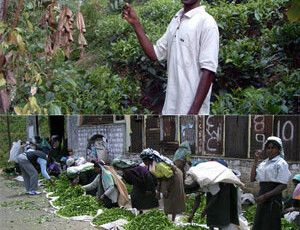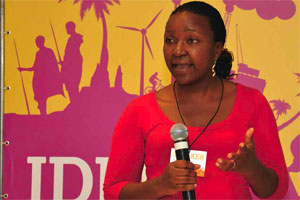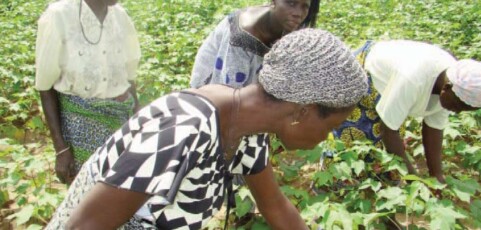The area around Wum in the Northwest Province of Cameroon is notorious as a conflict hotspot. As pressure increases on available land, conflicts occur more frequently between sedentary family farmers and pastoral communities. Farmer-pastoralist alliances are helping to resolve the conflicts by transforming the relationships between these families.
Seasonal Rice Production Facilities for Income Generation and Fight Against Food Insecurity in Tillaberi region
Started in 2013 to 2013 by ONGAGDL FAHAMEY IRI BONSE AND COMMUNITY in Twenty (20) villages vulnerable in the center – north of the Region of Tillaberi where The agricultural production system in the target area is based on rainfed agriculture based on the cultivation of millet, sorghum, cowpeas and groundnuts on depleted soils.
In addition, rainfall is low and poorly distributed and there is a gradual decline in productivity (300kg per hectare of millet) and a continuing degradation of existing agroforestry areas are an important source of income and food for people; and a disappearance of the soil itself as a natural resource. Population pressure (human and animal) complicates the scenario, and there is a difficult food situation. A situation made even more precarious by the alternation of good and bad crop years due to drought unpredictable. The people in the area consider rice as a ceremonial meal that is consumed during festivals, weddings and baptisms which often forced the heads of households to sell millet is consumed 12 out of 12 months at a low price to pay for the rice very expensive day parties. Improving the precarious food situation and the fight against land degradation require a diversification of agricultural production systems. The introduction of rice cultivation ponds is on the one hand more adapted to the environment, and other high-performance and high economic potential in production systems represent a promising way to food security; generation of income and environmental protection
Food fairs revive local food and nutrition
Food fairs are an important tool and space to promote food sovereignty as they take place in local public spaces and within people’s own socio-cultural settings. One excellent example was a food fair in Ghana, organised by the Centre for Indigenous Knowledge and Organisational Development (CIKOD). Women farmers exhibited traditional crops and foods, emphasising their importance for local and national food and nutrition security. The fair reminded community and political leaders of the value of neglected traditional foods. Some years later, it can be seen how this and subsequent food fairs helped to ensure the improved integration of traditional foods and agroecological farming into national food security plans.
Finding a way out of the maize
Recurring drought and crop failure in many parts of the world have led to food and nutrition insecurity, and a dependence on food aid. But recently, some farmers in Kenya have been developing their own sustainable way to secure enough nutritious food along with extra income so that they can send their children to school. Traditional drought tolerant, nutritious crops such as cassava, sorghum and millet that were losing popularity due to a surge in maize production are again becoming commonplace, with reliable harvests improving diets and income.
Climate Resilience Sustainable Agriculture Experiences
This document summarises case studies from ten countries through ActionAid’s approach to climate resilient sustainable agriculture, which incorporates agroecology in a human rights framework. Based on these experiences ActionAid recommends to increase investment in agroecology, as part of a comprehensive human rights based approach: Read more
When family farmers lead their own development
Steven Kiranga Gichanga is a family farmer in Mugaari, a village in Kenya. He was trained in goat rearing but could not afford a goat to get started. He was also trained in bee keeping but could not afford a bee hive either. After a community reflection Read more
Youth and agriculture: new think-tanks for family farming
Three young authors associated with the Africa Family Farming Workshops write about the importance of creating a dialogue between family farmers, scientists and policy makers. The Africa Family Farming Workshops is an interdisciplinary, regional think-tank that facilitates innovative collaboration.
Participatory Guarantee System and Analog Forestry
Besides providing for many of our needs, forests play a pivotal role in providing ecosystem services, ranging from biodiversity conservation to climate regulation. Read more
“We need to support what farmers are already doing”
Interview with Medius Bihunirwa, head of the Farmer Enterprise Development Unit at Kabarole Research and Resource Centre (KRC), Uganda. Medius works with smallholder farmers, enhancing the quality of their produce and improving their access to markets. Read more
A new tool for improving organic cotton yields in Africa
A report on studies into the development of a novel pest management tool for organic cotton undertaken by PAN UK and their partners in Benin, West Africa, between 2006 and 2008. This food spray product can be used alongside other biological tools to attract, conserve and utilize beneficial insects. Read more


